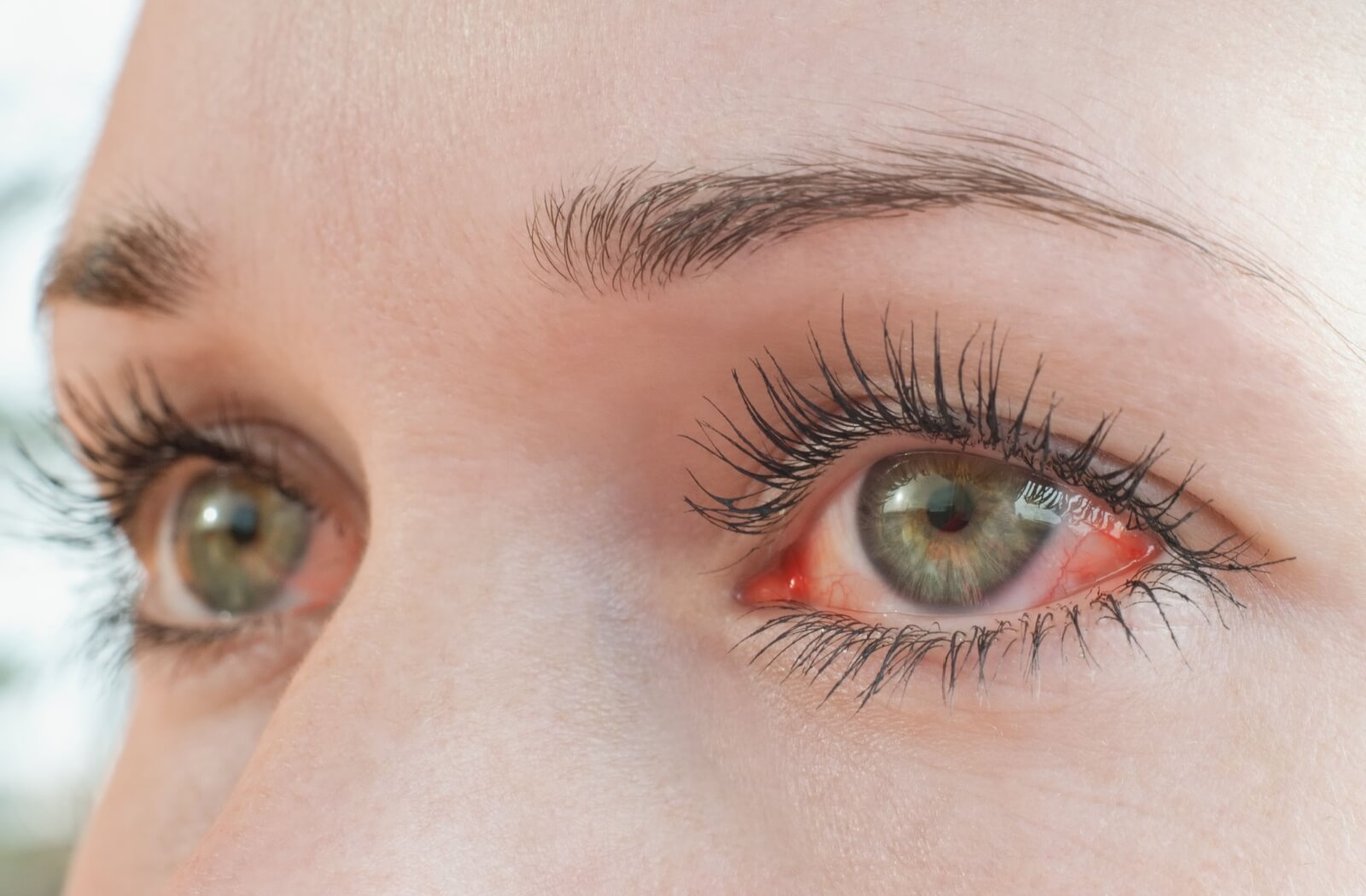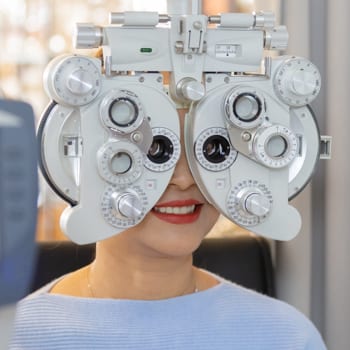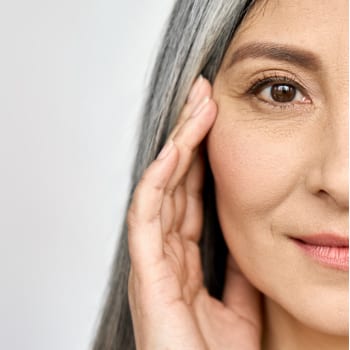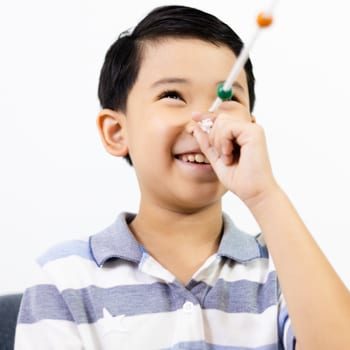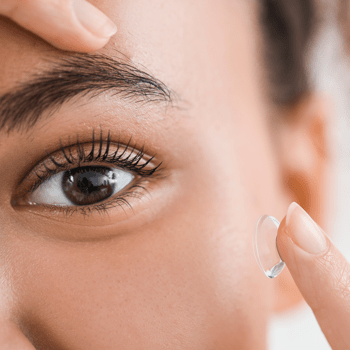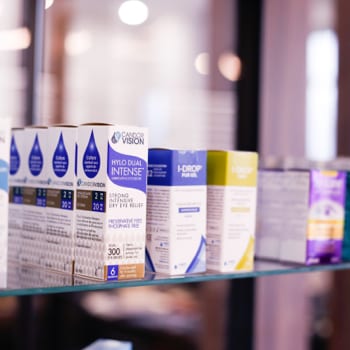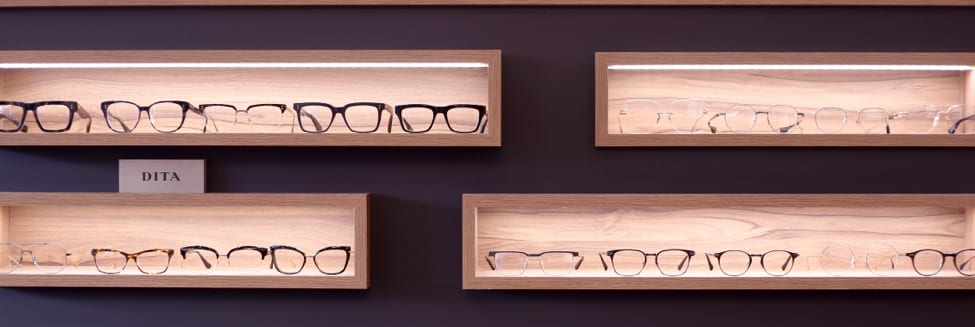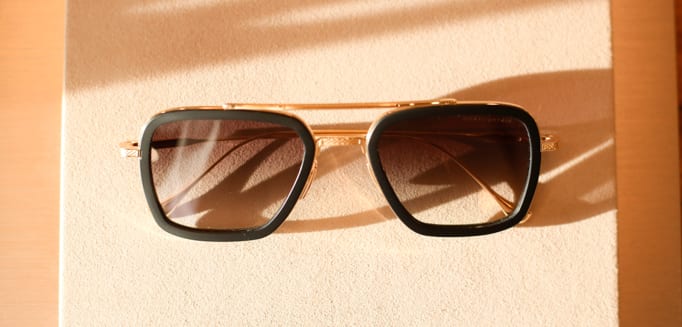Dry eyes are an uncomfortable and sometimes debilitating condition that can disrupt daily life. Many people turn to over-the-counter or prescription eye drops for relief, but the experience of using these drops isn’t always smooth.
A common concern among users is whether dry eye drops should sting upon application. The short answer is that it depends. In some cases, a mild stinging sensation is normal and not a cause for alarm. However, persistent or severe stinging may indicate an issue with the eye drops or an underlying problem that requires attention.
Booking an eye exam is the best way to ensure you’re using the right products for your eyes.
Why Do People Use Dry Eye Drops?
Dry eyes occur when your eyes don’t produce enough tears or when the tears evaporate too quickly. This can happen for a variety of reasons, including aging, prolonged screen time, environmental factors, or underlying health conditions. Dry eye symptoms include:
- A gritty or sandy sensation
- Redness and irritation
- Blurred vision
- Excessive tearing (as a reflex response to dryness)
Eye drops, often called artificial tears, are one of the most common treatments for dry eyes. These drops are designed to lubricate the eye’s surface, provide moisture, and alleviate symptoms. However, the immediate sensation after applying the drops can vary, with some people reporting stinging or burning.
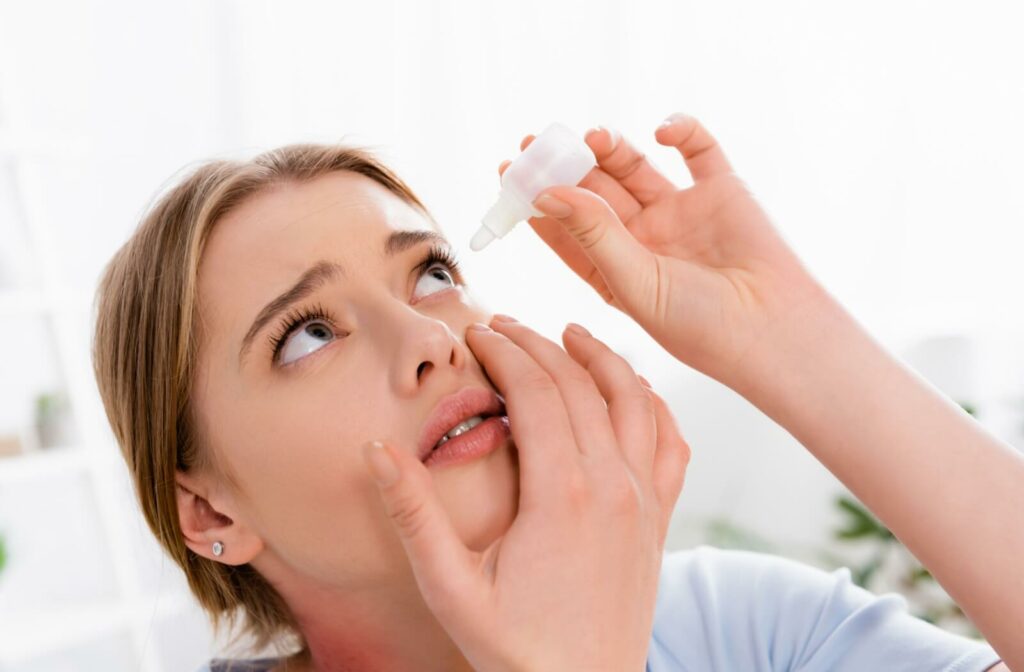
Should Dry Eye Drops Sting?
After using eye drops, some people may experience brief stinging or blurred vision, but these side effects often go away soon. Following the suggested dosage and usage is essential.
Normal Reasons for Stinging
- Preservatives in the Formula: Many eye drops may contain different preservatives to prevent bacterial growth in the bottle. Preservatives commonly found in prescription eye drops, such as benzalkonium chloride (BAK), can sometimes cause irritation or stinging, especially in people with sensitive eyes or those using drops frequently.
- pH and Osmolarity Differences: The eye’s surface has a specific pH balance and osmolarity. Some eye drops may have a slightly different pH or salt concentration, leading to a temporary stinging sensation as the eye adjusts to the new environment.
- Dryness-Induced Sensitivity: Extremely dry or damaged eyes may be more sensitive to any liquid applied to them. The stinging could simply be a response to the eye’s compromised state.
- Medication in Prescription Drops: If you’re using prescription eye drops, such as those for dry eye disease or glaucoma, the active ingredients may sometimes cause stinging as they work. For example, cyclosporine-based drops like Restasis or Cequa are known to cause mild discomfort in some people.
When Stinging Isn’t Normal
While occasional mild stinging can be expected, certain situations warrant further investigation:
Allergic Reaction
Some people may be allergic to specific ingredients in eye drops, such as preservatives, stabilizers, or active components. If the stinging is accompanied by redness, swelling, or itching, stop using the drops and consult an eye care professional.
Infection or Inflammation
If your eyes are infected or inflamed, they may react strongly to eye drops. For instance, conditions like conjunctivitis or blepharitis can make your eyes hypersensitive.
Expired or Contaminated Drops
Using expired or improperly stored eye drops can lead to irritation or stinging. Always check the expiration date and follow storage instructions. Single-use vials are an excellent choice for avoiding contamination.
Wrong Product for Your Condition
Not all eye drops are created equal. Some drops are designed for contact lens wearers, while others are intended for specific types of dry eye (e.g., evaporative or aqueous-deficient). Using the wrong type can worsen symptoms or cause discomfort.
How to Minimize Stinging
If you experience stinging when using dry eye drops, there are several steps you can take to alleviate the issue:
Opt for Preservative-Free Drops
Preservative-free drops are gentler on the eyes and less likely to cause irritation. These are especially recommended for people with sensitive eyes or those who need to use drops frequently throughout the day. Think of these as the most organic and natural supplement for dry eyes.
Choose pH-Balanced Drops
Some brands specifically formulate their drops to match the natural pH of tears. Look for products labeled as “balanced” or “gentle.”
Check Ingredients
Avoid drops with alcohol-based preservatives or other potentially irritating additives. If you’re unsure, consult with your eye care provider for recommendations.
Treat Underlying Conditions
If stinging persists, it may indicate an underlying issue, such as meibomian gland dysfunction, blepharitis, or a compromised ocular surface. An eye care professional can help address these conditions, improving overall comfort.
When to See an Eye Doctor
Persistent stinging should not be ignored, especially if accompanied by other symptoms like redness, swelling, or vision changes. It’s essential to see an eye doctor if:
- The stinging is severe or lasts more than a few seconds.
- Over-the-counter drops don’t relieve your symptoms.
- You experience other signs of an allergic reaction or infection.
Eye care professionals can perform an eye exam to determine the cause of your discomfort and recommend appropriate treatments, including prescription medications, lifestyle changes, or advanced therapies like MiBo ThermoFlo, intense pulsed light therapy, and eyelid debridement.
Finding Comfort for Your Dry Eyes
While a mild stinging sensation when using dry eye drops can be normal, it’s not something you should endure regularly. Understanding the reasons behind stinging and taking proactive steps—such as switching to preservative-free drops or consulting with an eye care professional—can make a significant difference in your comfort and eye health.
If dry eyes are affecting your quality of life, don’t hesitate to seek professional advice. We encourage you to reach out and make an appointment with us at Foresee Eyecare for an eye evaluation and tailored solutions for your dry eye concerns.
Dry eyes are manageable with the right care, and relief is within reach. By addressing the root causes of stinging and finding the best products for your needs, you can enjoy clearer, more comfortable vision every day.

